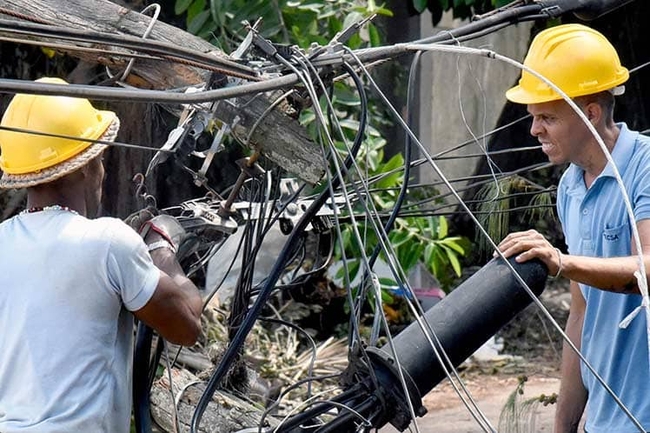UN relief chief urges global solidarity for Cuba following devastation caused by Hurricane Ian
Reliefweb | Thursday, 20 October 2022 | Click here for original article

UN calls for US$42 million to speed up response, recovery efforts
(New York, 18 October 2022) Hurricane Ian was one of the worst disasters ever to hit Cuba, pummeling the country’s western provinces and affecting an estimated 3.2 million people. Many lives were saved thanks to swift evacuations, but the hurricane battered schools, homes, hospitals, local businesses and agricultural areas.
The UN system in Cuba, led by UN Resident Coordinator Consuelo Vidal, has launched a $42 million Plan of Action to enable relief efforts and jump-start recovery. To support this, Martin Griffiths, the UnderSecretary-General for Humanitarian Affairs and Emergency Relief Coordinator, has allocated $7.8 million from the Central Emergency Response Fund (CERF).
“The people of Cuba have shown tremendous resilience and acted quickly on early warnings when facing storms,” said Mr. Griffiths. “However, the climate crisis makes storms more intense and more frequent. People were expecting 50 centimetres of rain, but they experienced three times that amount, losing their homes, family photos, children’s school supplies and elderly parents’ medicines. We all must help the people to respond and recover.”
Food, health supplies, hygiene kits, shelter supplies and other items that were pre-positioned ahead of the hurricane are already reaching people in need, but they need much more support. The hurricane damaged some 170 health clinics and more than 1,000 schools, affecting the education of 139,000 children. Several community food-distribution centres and processing warehouses were lost, and many people lost fishing boats, livestock and other means of sustaining their livelihoods.
The lack of electricity in much of the affected area and the limited availability of fuel are hindering the response.
The newly allocated CERF funds will help 575,000 people in the areas of food security, health, water and sanitation, shelter and education.






